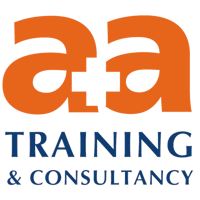A&A Training & Consultancy provides an extensive range of clinical skills training. All courses can be tailored to your organisation’s or client’s needs. Our trainers work across the UK and cover a wide range of specialist areas, including:
Aim: To gain an understanding of the anatomy and physiology of the Respiratory System and safely and confidently care for a client who requires a tracheostomy. Tracheostomy Care can be tailored for adults and/or children.
Learning outcomes:
- Types of tracheostomy
- Requirement for a tracheostomy
- Tracheostomy and suction
- Practise with manikin
- Importance of Stoma Care in relation to tracheostomy
- Cleaning of a Stoma and the changing of dressings
- Changing a tracheostomy
- Resuscitation with tracheostomy
- Practise with Bag Valve Mask
- Managing complications
- Importance of documentation and consent
- Awareness of privacy and dignity
Aims: To develop competence in the immediate management of Anaphylaxis, develop expertise in management of Anaphylaxis and be made aware of the legal aspects of drug administration.
Learning outcomes:
- Understanding incidence of Anaphylaxis
- Knowledge of pathophysiology
- Patient assessment and diagnosis
- Drug administration and treatment
Aims: To update professional responsibilities and accountability with safekeeping, the administration of controlled drugs and medicine management, following current guidelines and policies. To be made aware of the legal and professional responsibilities, accountability, and implications of drug administration.
Learning outcomes:
- Legal and professional responsibilities and the implications of accountability when administering drugs
- Principles of safe drug administration
- Importance of safe administration of Controlled Drugs
- Documentation and consent
- Principles of managing, recording and reporting medication errors
- Common abbreviations used on prescriptions
- Building confidence and competency to dispense medication
Aim: To review safe practices surrounding Immunisation and Vaccination programmes to the National Minimum standards required and to revisit the principles including informed consent.
Learning outcomes:
- Significance of vaccinations
- Recognition and treatment of drug reaction including anaphylaxis
- Accountability and responsibility in practice
- Types of vaccinations
- Exploration of vaccines and the diseases they prevent
- Gaining appropriate advice and guidance
- Awareness of common side effects
- Standards of all elements of practice
- Reporting using yellow-card online system
Aim: To gain an understanding of the safe practice of Venepuncture / Phlebotomy, in preparation for practise on patients.
Learning outcomes:
- Purpose of Venepuncture
- Risks and complications of the procedure
- Importance of safety and infection control
- Anatomy and awareness
- Undertake procedure theory and practice
- Different equipment
- Hints and tips
- Practice with manikin arms
- Purpose of intravenous cannulation
- Competency forms to take to practice
Aim: Enhance knowledge surrounding the care and irrigation of the ear.
Learning outcomes:
- Basic anatomy and physiology of the ear
- Prevention of ear problems
- Base practical aural toilet instrumentation and ear irrigation
- Understanding hearing loss and hearing aids available
- Accountability, documentation and management in changes to ear care
- Future management of ear problems
Aim: To gain competency in compression bandaging.
Learning outcomes:
- Rationale for using compression bandaging
- Pathophysiological processes required
- Correct patient assessment
Aim: To develop the knowledge and skills needed to insert and manage urinary catheters in female and male patients, as well as the knowledge and skills needed to manage suprapubic catheters.
Learning outcomes:
- To understand the indications and purpose of urethral and suprapubic catheterization
- To understand the anatomy of the male and female urinary system, and the physiology of a suprapubic catheter.
- To understand the risks, complications, and contraindications in relation to urethral and suprapubic catheterization
- To understand the issues of safety and infection control in relation to urethral and suprapubic catheter care
- To understand the indications and management of the removal of a urethral and suprapubic catheter
Aims: To introduce and update knowledge and skills in relation to PEG and safely, confidently and competently care for a client. In addition, to update knowledge in relation to the need and application of cough assist for spinal injured people.
Learning outcomes:
- Understanding the physiology of the respiratory system
- Recognition of respiratory compromise and appropriate actions required to prevent complications
- Understanding of PEG and MIC-KY
- Identifying health issues
- Feeding via a PEG
- Giving medication via a PEG
- To understand the correct procedure for assisted cough
- Troubleshooting and complications
- Practical handling and Q&A
Aim: For candidates be confident and competent when inserting and caring for a patient with a Naso Gastric tube.
Learning outcomes:
- Indications for insertion
- Contra-indications
- Types of tubes, lines and syringes
- Checking for correct placement
- Side effects
- Principles of care and maintenance
- Legal Implications
Further Information
Please contact us if you would like more information about our courses, or if you would like to discuss your training needs.

